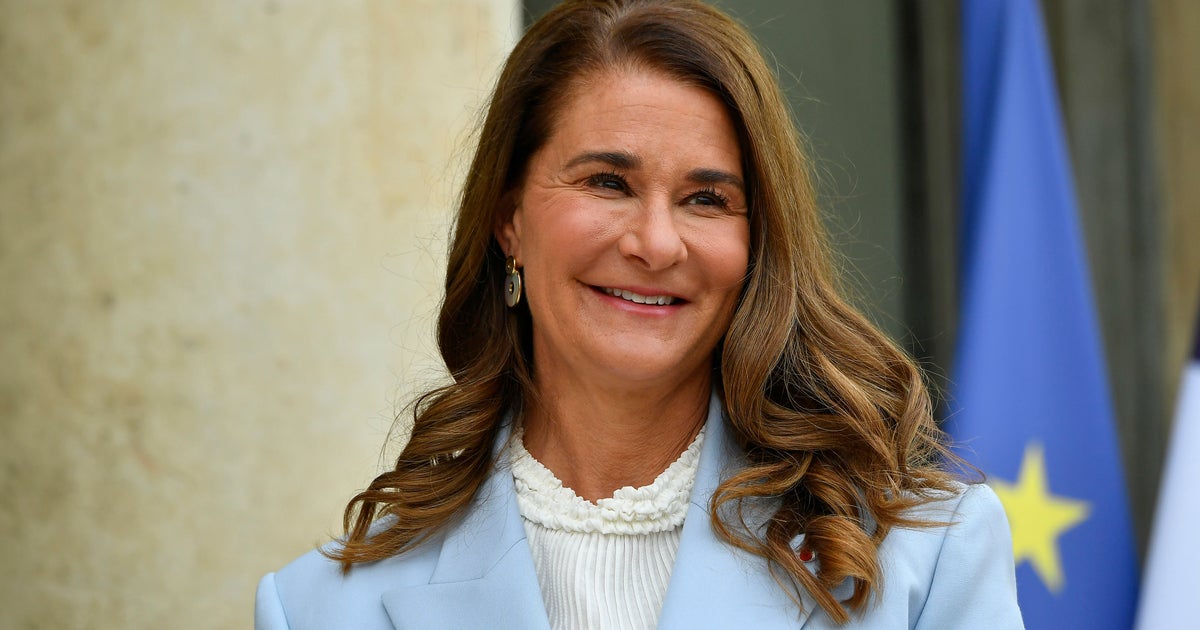As states cut funding for higher education, universities use lavish perks to compete for students
Today "CBS This Morning" launches a new series called "The Price You Pay." It looks at who is getting rich while so many Americans fall behind.
The price of college is a cost that's supposed to be an investment. By 2020, an estimated 65% of jobs are expected to require at least some college training. But that training has never been more expensive, with the average cost of attending a public college up tenfold since 1965.
There was a time when college was a pretty bare-bones experience – classroom buildings, fraternity houses and dorms and administrative offices.
But these days? Students at Louisiana State University can now enjoy a 500-foot "lazy river" that spells out LSU. And there is a paid lifeguard on duty.
"I pay for this," the lifeguard, a student, said. "It's in my fees."
Lavish perks are now common at major colleges, part of a national "arms race" in amenities from fancier dorms to gourmet food to rec centers that resemble water parks.
Economists tell us it's all evidence of a broken system. As states have cut funding for higher education, few universities have cut their ambition. Instead they're competing to expand enrollment and recruit more out-of-state and international students, who typically pay much more for the same education.
And as a result, at big state universities all over the country, it can get harder and harder to actually find students who are from the state.
At Penn State, "CBS This Morning" co-host Tony Dokoupil asked some students on campus how many were from Pennsylvania. He found one. Others were from California, China, Long Island, Houston, Los Angeles and Rome.
So what are colleges doing with all your extra money? Some of it goes to teaching, of course, but most does not. At LSU, while students enjoy the new lazy river, some of the academic facilities are showing their age.
LSU senior and Student Senate Speaker Pro Tempore Catherine McKinney took Dokoupil on a tour of what she said are her school's questionable priorities. Dokoupil asked her, "The library is the focal point of the quad, but would you say it's the focal point of school funding?"
"Absolutely not," she said. "I think, if anything, it's kind of been neglected by school funding."
At the library, some of the building was literally falling apart while the school's tuition and fees have doubled in a decade.
Dokoupil said. "The library has water in the basement and rugs from another generation. But, you have a lazy river."
"We have a lazy river. So, maybe I should just go relax," McKinney said, laughing.
Louisiana State and Penn State declined CBS News' requests for an interview. But the president of another major public university did agree to talk about why college has become so expensive.
Dr. Renu Khator is the president and chancellor of the University of Houston, where tuition and fees are more than five times higher than they were just a couple of decades ago. She's also one of the highest-paid university presidents in the country, a group whose salaries have grown along with the cost of attendance.
Dokoupil asked, "What makes this topic so difficult?"
"Because there are no good answers and no good solutions right now," Khator replied.
"Why couldn't you leave the classrooms a little bit old and keep the services a little bit scaled back, and just keep tuition and fees and room and board down?"
"Well, I'm glad you aren't a university president because you want to come to a facility, you want to come to a place which feels cared for," Khator said.
Dokoupil asked, "As long as university presidents continue to be as ambitious as you have been, students around the country, and here, are going to walk out with a degree and an experience, but a boatload of debt, a record amount. So, how does that cycle break? Doesn't it break by someone like yourself saying, 'No more, I'm not gonna do it'?"
"Tony, you are telling me, 'Don't be ambitious for the sake of your students'? 'Don't be ambitious about them graduating'? 'Don't be ambitious about them learning'? Why am I university president then?" Khator said. "I am dead-focused on a student's success. We look at, holistically, what students need and what more we can do for them. Because at the end of the day, we need more graduates, more college graduates."
We want to underscore that this is not an issue unique to LSU, Penn State or the University of Houston. All the schools we spoke with blamed state funding cuts for causing higher tuition and fees and argued they're no more expensive than their peers.
LSU claims every project on campus, even the lazy river, supports the educational environment.
"CBS This Morning" received these statements from the following universities:
Louisiana State University
From Ernie Ballard III, Louisiana State University Media Relations Director:
"Over the last few years, Louisiana universities have had to rely more on self-generated revenues than state support (LSU's operating budget is currently around 75 percent self-generated revenues vs. about 40 percent being self-generated 10 years ago). However, it is not accurate to say that LSU has devoted resources to projects not directly related to education. Every project on campus is directly related to education, whether that be a health and wellness project such as the University Recreation Center, living and learning environments in the form of new residence halls, or academic college facilities themselves.
"In the last 15 years, LSU has constructed or renovated facilities across camps, including a new Business Education Complex, Patrick F. Taylor Hall for engineering, the French House for our Honors College, the Journalism Building, the Music & Dramatic Arts Building, the Student Union, the band hall, two dining halls, a number of residence halls and apartments, a new bookstore, and parking garage project that also added new space for our African American Cultural Center, Women's Center and Veterans Center, just to name a few. Each and every one of these projects add to the educational environment on campus.
"In addition, we now have more students living on campus than ever before – more than 7,000 – and it has been proven that students who live and spend more time on campus have higher GPAs and are more successful in finishing their degrees. By having amenities such as the UREC, multiple dining options, a grocery store, the Student Health Center, numerous study and lab spaces, etc., students are able to stay on campus and build more of a community with their peers and ultimately be more successful."
Penn State
From Lawrence Lokman, Penn State Vice President for Strategic Communications:
"…[T]uition and fees have risen over time in direct correlation with state funding cuts. Pennsylvania ranks 47th in the nation in per student funding, and our tuition levels as a public university reflect that. The same is true for Pitt's appropriation and tuition…
"…Here is where we do stand out: Penn State's tuition is less today than five years ago when adjusted for inflation. And, in the last ten years, we are in the top five of 50 state flagships with the smallest overall tuition increases. The latest Chronicle data, released on August 18, ranks Penn State at University Park 15th among publics for in-state costs, and 37th for out-of-state.
"The bottom line is that our Board of Trustees and presidents, especially the current administration, have held the line on costs more than most universities in all of public higher ed for the better part of a decade now. You don't have to search hard for an explanation as to why Penn State's tuition is higher over three decades. It corresponds directly with decades-long declines in state funding, as the data make clear."
University of Houston
When Tony Dokoupil asked about student debt, Dr. Khator said, "We keep a pretty good eye on debt. I'm not saying there is no debt, and I'm not saying that the debt is low, and I'm not saying I'm not concerned about it. If anything we can do and we constantly – I mean, we always make push at the state level trying to see what is it that we can do for students. Because affordability is a big piece of their learning, too. If they're financially stressed, they cannot learn … But you also have to realize what universities are expected to do today that they were not doing 12 years ago."
Dokoupil asked who is setting those expectations.
"I expect our students to be in a condition where they can learn," Dr. Khator responded. "I don't want them to be mentally feeling distressed … We try do a lot so that they're not feeling financially stressed. Some will, I'm sure. But our effort is to try to reach out and make their learning environment where outside the classroom they can learn. But at the same time, we can reduce their stress as much as possible."





